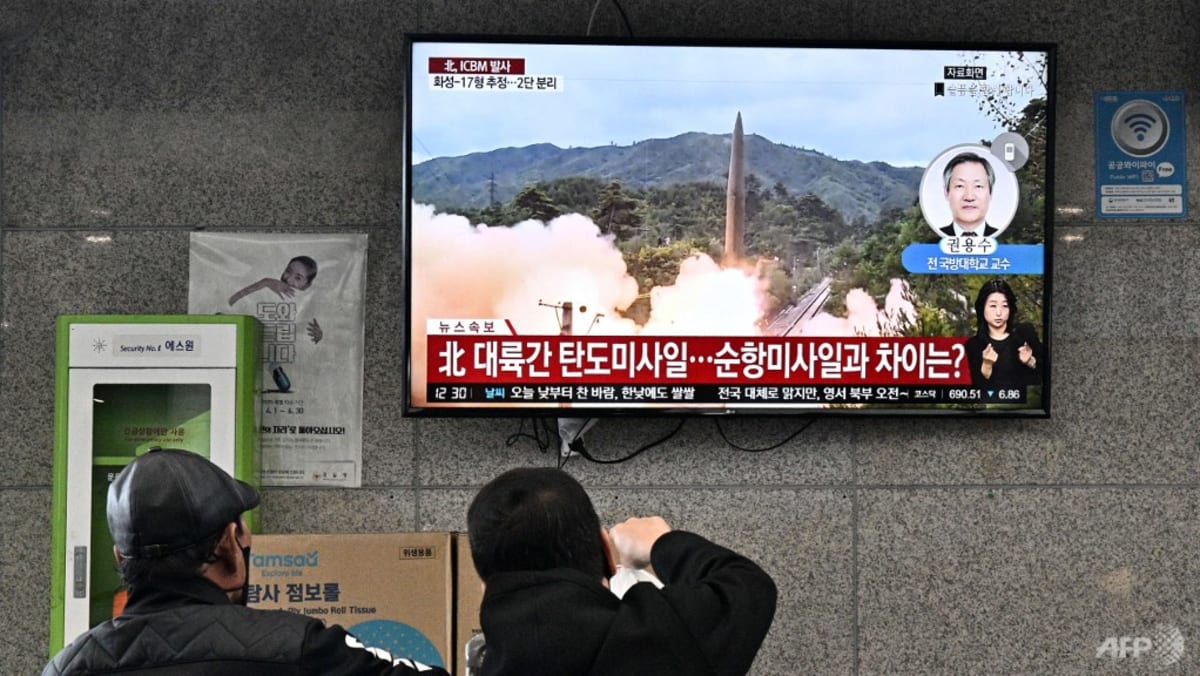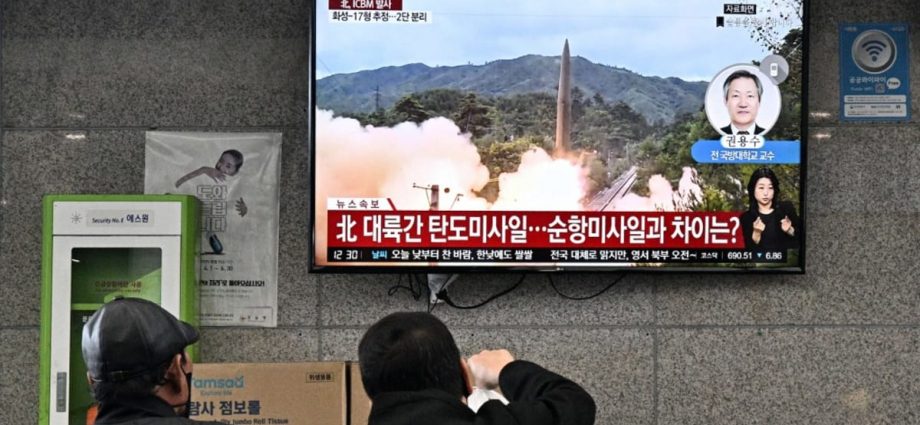
SEOUL: North Korea has fired more missiles in the last 24 hours than it did during the whole of 2017 – the year of “fire and fury” when leader Kim Jong Un traded barbs with then-US president Donald Trump.
What has triggered the record-breaking blitz of weapons tests? Analysts say ongoing US-South Korean military exercises are a key factor, and warn that Kim is building up to another nuclear test.
AFP takes a look at what’s going on:
What drills?
Seoul and Washington are carrying out their largest ever joint air drills, called Vigilant Storm, which involve hundreds of warplanes from both sides staging mock attacks 24 hours a day.
The drills, originally due to end on Friday (Nov 4), will be extended, South Korea’s air force said, to “maintain ironclad security joint posture” in the face of North Korean aggression.
The complex annual exercises take “months of planning and preparation”, South Korea’s air force says.
This year, about 240 American and South Korean warplanes will conduct about 1,600 sorties, which is “the largest number ever” for these drills, it added.
The exercises “strengthen the operational and tactical capabilities of combined air operations”, it said.
Why do they matter?
The drills involve some of South Korea and America’s advanced fighter jets – F-35As and F-35Bs, both of which are stealth aircraft designed to produce as small a radar signature as possible.
North Korea may have nuclear weapons – which the South does not – but its air force is the weakest link in its military, analysts say, and is likely unable to counter stealth aircraft technology.
“Most of North Korea’s aircraft are outdated … they have very few state-of-the-art fighter jets,” Cheong Seong-chang, a researcher at the Sejong Institute, told AFP.
“The North does not have much oil needed for aircraft, so training is also not being done properly,” he added.
What’s Kim afraid of?
The stealth jets, experts say.
This summer there were reports that US and South Korean commandos were practising so-called “decapitation strikes” – the removal of North Korea’s top leadership in a lightning-fast military operation.
Pyongyang’s blitz of launches this week are “because of Vigilant Storm which includes the F-35 stealth fighter jets”, said Go Myong-hyun, a researcher at the Asan Institute for Policy Studies.
Pyongyang believes stealth jets would “be used in decapitation operations”, Go added.
Experts say there are additional signs that Kim is concerned, pointing to a revision of North Korea’s nuclear law this September.
The new law, which allows for a first nuclear strike, placed Pyongyang’s nukes under Kim’s “monolithic command”.
If North Korea’s nuclear “command and control system” – Kim – is “placed in danger owing to an attack by hostile forces, a nuclear strike shall be launched automatically and immediately”, it says.

